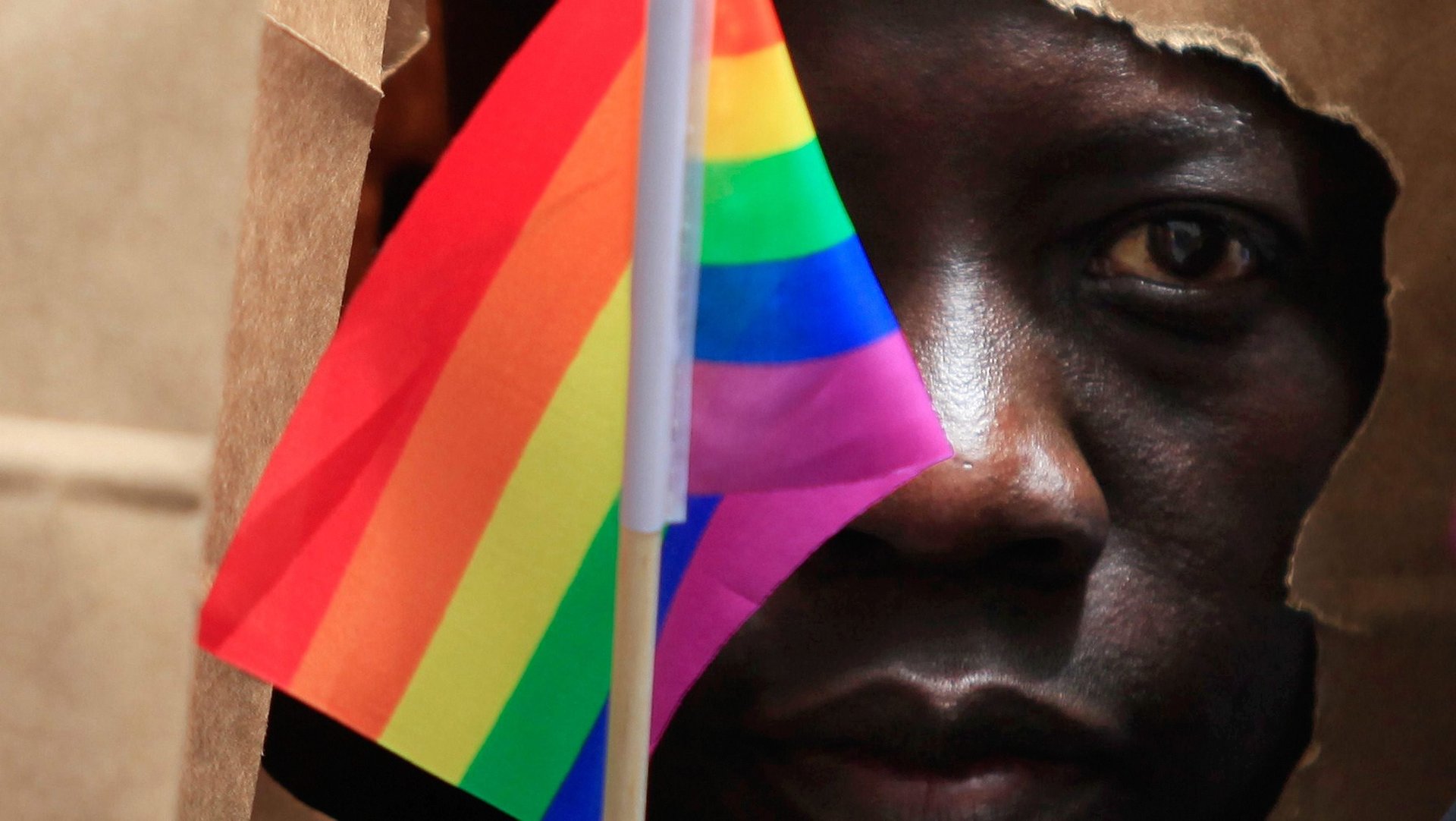Britain apologized for its colonial-era anti-gay laws but it won’t help African LGBT communities
When British prime minister Theresa May, who’d been pushed hard by activists in her country, apologized to the citizens of Commonwealth nations last week for inflicting dreaded anti-gay laws upon them it was momentous. Historic even.


When British prime minister Theresa May, who’d been pushed hard by activists in her country, apologized to the citizens of Commonwealth nations last week for inflicting dreaded anti-gay laws upon them it was momentous. Historic even.
“I am all too aware that these laws were often put in place by my own country,” she told leaders at the just concluded Commonwealth Heads of Government Meeting (CHOGM2018) in London. “They were wrong then and they are wrong now.”
The colonial-era ‘sodomy laws’ are in place in 36 out of 53 Commonwealth nations. And they’ve remained in place for well over 60 years in many African countries with the occasional controversial update at election time. As the West has gained more knowledge on human sexuality and moved away from classifying it as disease or criminal, the UK has changed its laws, and, eventually, fully embraced marriage equality between people of the same gender.
But will May’s ‘deep regret’ move the needle for gay, lesbian or transgender Africans who more often than not have to deal with brute force of the state and the stigma some in society openly heap on them?
Probably not.
In 2018, many on the continent aren’t expecting May’s regrets to make much difference as they navigate staying alive while loving and living with dignity. In Nairobi, Kenya, Nguru Karugu, a longtime social justice advocate heard the remarks and thought they were of little significance.
“The Kenyan LGBT movement has continued to exert itself supported by a progressive constitution. Britain’s statement does not increase or decrease the trajectory the movement has embarked upon on its justice journey,” Karugu, the executive director of Public Health Innovations consulting firm, said.
This rapidly growing movement however is one that the Kenyan president, Uhuru Kenyatta refuses to even acknowledge. Shortly after May’s remarks, he told CNN that LGBT equality in the Kenyan republic was a nonissue.
“I will not engage in a subject of no … it is not of any major importance to the people and the Republic of Kenya. This is not an issue, as you would want to put it, of human rights. This is an issue of society, of our own base, as a culture as a people,” he said adding that 99% of his fellow citizens agree with him.
Bur lately, courtrooms in Kenya tell a different story and are slowly affirming Kenyan gays who refuse to stay silent. And few say, Kenyatta is not speaking for them.
Across sub-Saharan Africa, the climate is increasingly hostile, particularly in former British colonies. Anyone can be arrested for on suspicion of being part of the LGBT family. In Zimbabwe there are recent reports of arrests of people simply on a night out; In Nigeria, it remains open season with entrapment of gays being the norm since former president Goodluck Jonathan, signed into law a draconian anti-gay bill in an Election Year gambit that he lost in 2015.
Of course the apology by May was received in Nigeria by scorn being heaped on her and media commentators there conflating decriminalization of adult consensual sexual activity that May called for, with marriage for same sex couples. Over in Tanzania, the state continues to bully activists, arresting anyone they deem to have any whiff of homosexual sympathies. And in Ghana, one prominent Christian leader, Emmanuel Martey, of the Presbyterian church of Ghana deems all gay Ghanaians as ‘Satanists’. And Kingsford Sumana Bagbin, the deputy speaker of parliament claimed homosexuality is worse than an atomic bomb. In Ghana at election time, gay hysteria seems to ramp up like it does in Nigeria.
A few years ago I asked one of Ghana’s noted historians why the Ghanaian sodomy laws which condemned men was silent on women. Nat Amarteifio, Accra’s former mayor howled with laughter then explained: “These laws were written fifty years ago when they didn’t dare think their women had sexual drives for men much less for women.”
So for some May’s apology was a day late and a dollar short.
“Why didn’t she simply condemn the fellow Commonwealth members to repeal their laws, not say the UK will stand by countries who want to reform? ” wondered Nairobi resident Kevin Mwachiro, 45, who felt perhaps she ought to have pointed out the worst offenders. “She should have been more forthright in condemning member countries that still have those laws.”
Still there are glimpses of hope. And resilience.
LGBT people in tiny Kingdom of eSwatini, (Swaziland) are refusing to hide anymore and planning a commemoration of Pride. While Ugandan police keep shutting down, LGBT cultural events, they continue to happen. Nigerian queer women are taking steps away from the shadows too as their queer stories are going public. ‘She Called Me Woman’ (Cassava Republic) hits Lagos bookstores in June.